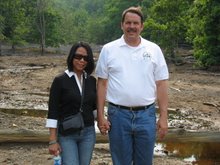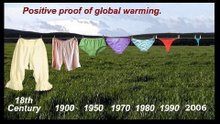By contrast, children of the future might be chastised for NOT using electricity. That may sound odd, so let me explain. Photovoltaic (PV) panels generate electricity as long as the sun hits them, but they’re most productive during “peak” sunlight hours. Most of the United States gets peak sunlight, and therefore maximum output from solar panels, for 3 to 5 hours per day. A grid-tied system feeds this energy back into the grid, and it offsets power used at night. On the other hand, the energy produced by an off-grid system is usually stored in batteries. For several reasons, this process is far less efficient than a grid-tied system. However, if the off-grid system output is used to directly power a load, instead of storing and retrieving it, system efficiency increases dramatically. We get the most from an off-grid system by using it during peak sunlight hours, and we should exploit that whenever we can. Chores like washing and drying clothes, pumping water, and preparing food should be done during the day. Using appliances and machinery during the day, and avoiding their use at night, will be common practice in the future. The child who forgets to do his chores during peak sunlight hours may be in for a scolding.
For the past 100 years we’ve gotten used to paying for the electricity we use. It may be hard for some of us to grasp the concept of free electricity, but PV-produced electricity is indeed free. Once we’ve used all we need for charging batteries and powering devices, the rest can be considered free. We can leave lights or appliances on at no cost (except for the wear and tear on the lights and appliances).
Some people believe that civilization will decline as fossil fuels become more expensive, but I believe that we’ll adjust. Learning new habits will be part of that adjustment. The way we use electricity will not be the only change. We’ll still have transportation, but the vehicles that take us from place to place will change dramatically. We’ll still have comfortable homes, but our HVAC systems will be radically different than they are today. The equipment and systems will still be automatic and thermostatically controlled, and we’ll continue to make adjustments to ensure optimization. In other words; our equipment will be different but we’ll use it pretty much the same way we use the equipment of today.
More of us will have gardens in the future, and those who already have gardens will have bigger ones. Gardens not only help offset the rising cost of food, they can be part of our heating and cooling systems. Some already heat their homes with biofuels, and some use “green roofs” to help keep their homes cool.

You might argue that the ideas I’ve presented here represent a more labor-intensive lifestyle than we’re used to, indicating a decline in the quality of life, but I would disagree. While many of these strategies do indeed require more effort, they’ll also keep us more fit and in better health. We’ll benefit from a better quality of food, more exercise, and better air quality. Anyone who’s ever compared a store-bought tomato to one grown in a backyard garden knows what I mean. Tomatoes that have to be shipped a long distance are picked green, and “gassed” to turn them red by the time they show up in the supermarket. They’re rock-hard, and have little flavor. I can only guess that the nutritional and cancer-fighting properties are not what they should be either. And it’s wise to remember that the recent salmonella outbreak linked to tomatoes was a result of industrial agriculture. Shipping fewer vegetables not only means better food, it also means fewer trucks on the road, which reduces fossil fuel use and improves air quality.
When it comes to the future, there are three kinds of people: those who let it happen, those who make it happen, and those who wonder what happened.
John M. Richardson, Jr.
There will be bumps in the road to oil independence. We’ve overreacted to the rapid rise in the price of oil by making ethanol from corn (kernels), when we should be making it from agricultural waste (cellulosic ethanol). But we’ll adjust, and we’ll eventually be living a far better life than we do today. We’ll replace our dirty gasoline-powered cars with non-polluting electric ones. We’ll develop better ways to keep warm in the winter and cool in the summer. We’ll find better ways to heat water. We’ll generate at least a portion of our own electricity. We’ll build communities that allow us to walk or bike to the grocery store and to work. Additional chores will instill a greater sense of responsibility in our children, resulting in far fewer social problems than we have today.
What we need now is for governments to stop making war, stop promoting fossil fuels, and to begin supporting alternative energy in a substantial way and with well thought out plans. Beyond that, we need little help from them. If they’ll just get out of our way and let us use what God has given us, we’ll be fine.
John








1 comment:
Hi SJ,
Nice post!
I'm not sure microgenerated PV energy is 'free' since if you run out it's a calamity, and if you are grid-tied and you use more than necessary then you displace less fossil-fuel burn in a power station than you might otherwise have done.
But I agree that avoiding going in and out of batteries is good if the energy can be used there and then.
In fact, the same applies to grid-tied, since using on the spot eliminates transmission losses and so on.
Generally, aligning use with availability is a GoodThing(TM).
Rgds
Damon
Post a Comment